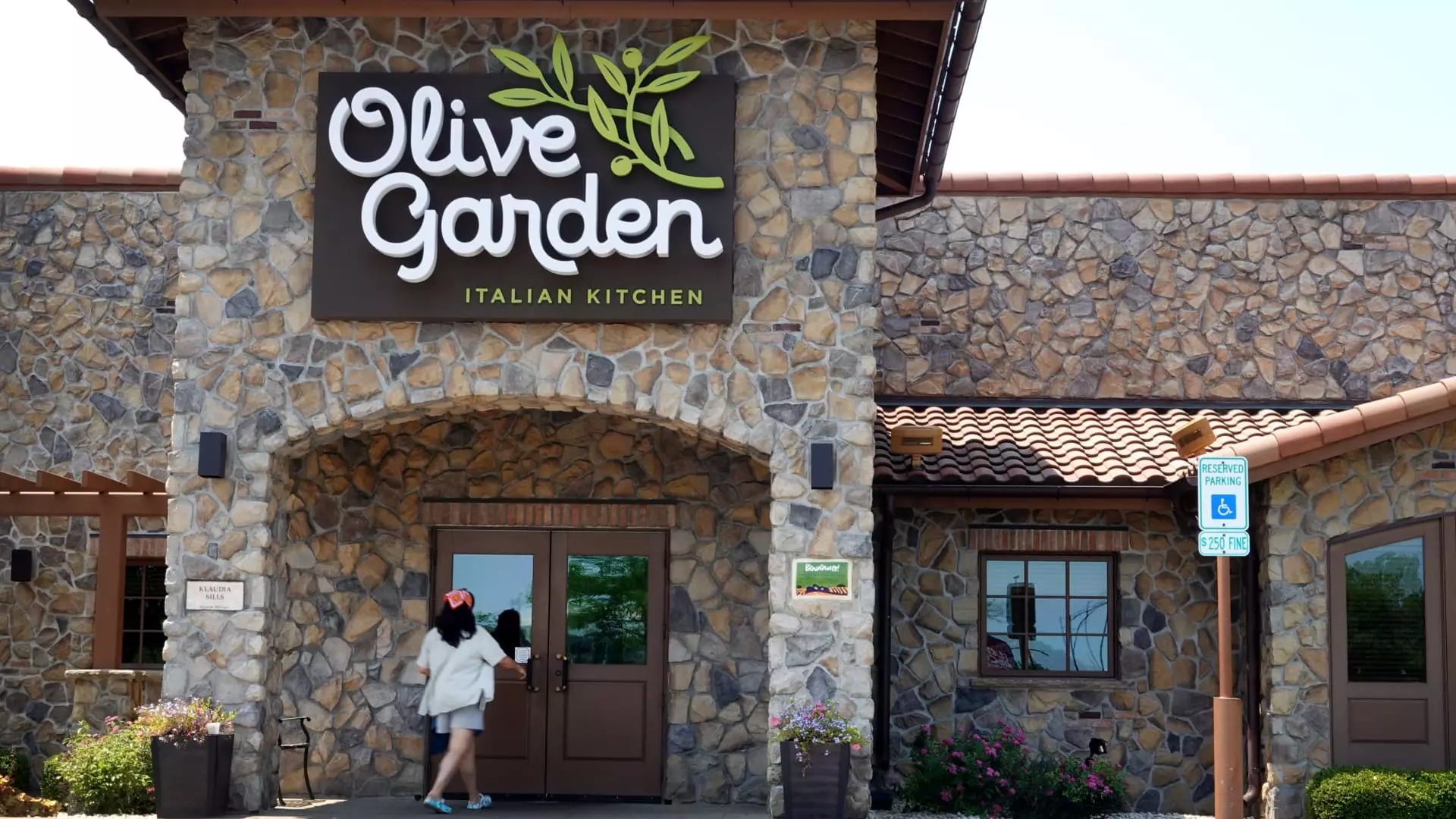Darden Restaurants, a prominent player in the casual dining industry, unveiled its quarterly financial results on Thursday, surpassing several analysts’ expectations while showcasing notable growth at some of its most recognized brands—Olive Garden and LongHorn Steakhouse. However, the company’s results brought a mixed bag of insights regarding consumer behavior and operational challenges, providing a complex picture of the restaurant chain’s performance.
Darden reported an adjusted earnings per share (EPS) of $2.03, slightly above the expected $2.02. For the company’s fiscal second quarter, net income was reported at $215.1 million, translating to $1.82 per share, reflecting a growth from $212.1 million, or $1.76 per share, from the same quarter last year. While revenue came in at $2.89 billion—just shy of the $2.9 billion analysts had predicted—it represented a healthy 6% increase compared to previous periods. Darden’s same-store sales, a critical performance metric, increased by 2.4%, outpacing expectations that were pegged at 1.5%, indicating that certain brands are resonating well with consumers.
Chief Executive Officer Rick Cardenas offered insights during the company’s earnings call, noting a shift in consumer sentiment. Particularly, diners with incomes ranging from $50,000 to $100,000 are frequenting Darden restaurants more often, a promising sign that suggests a potential rebound in consumer confidence. However, it is essential to highlight that visits from higher-income customers have not seen a corresponding increase, indicating that luxury dining experiences may still be experiencing challenges in attracting affluent patrons.
Moreover, the report hinted at the impact of environmental factors on operations—Darden noted disruptions from Hurricanes Helene and Milton, though only one of its locations, a Cheddar’s Scratch Kitchen in Asheville, faced closure and was expected to reopen next year.
Darden’s brands performed differently, revealing a nuanced landscape across its portfolio. Notably, LongHorn Steakhouse delivered impressive same-store sales growth of 7.5%, significantly exceeding Wall Street’s expectations of 4.1%. This segment has emerged as a consumer favorite, driven by quality offerings and competitive pricing strategies.
On the other hand, Olive Garden, which plays a pivotal role in Darden’s overall revenue—accounting for more than 40%—reported a 2% increase in same-store sales. This surpassed analyst forecasts of 1.4% and can be attributed to strategic promotions, such as the return of the popular “Never Ending Pasta Bowl,” which encouraged customers to increase their spending. Furthermore, Olive Garden is experimenting with Uber Eats delivery services in select locations, indicating a progressive approach to modern consumer demands.
However, the fine-dining segment, which encompasses brands like The Capital Grille and Ruth’s Chris Steak House, faced a more challenging environment. Reporting a steeper-than-expected decline of 5.8% in same-store sales, the segment clearly struggles with pricing power as consumers become more budget-conscious. The shifting calendar of Thanksgiving, which moved from the fiscal second quarter to the third, compounded this issue and may have skewed sales data.
In a bid to strengthen its market presence, Darden added a net total of 39 new locations during the quarter, which included the acquisition of 103 Chuy’s restaurants, as part of a $605 million deal completed in October. This acquisition is poised to enhance Darden’s portfolio, though Chuy’s sales will only be included in same-store metrics starting in the fiscal fourth quarter of 2026. Such strategic expansions reinforce Darden’s commitment to broadening its geographic footprint and diversifying its culinary offerings.
Looking ahead, Darden revised its fiscal 2025 sales outlook upwards to an anticipated total of $12.1 billion, enhancing from an earlier estimate of $11.8 to $11.9 billion. The company has maintained its forecast for net earnings per share from continuing operations at a range between $9.40 and $9.60.
Darden Restaurants reported a mixed but ultimately positive quarter. As some segments thrive while others face challenges, the company appears poised to adapt and evolve in a rapidly changing dining landscape, leveraging both consumer insights and strategic initiatives for sustained growth in the future.

